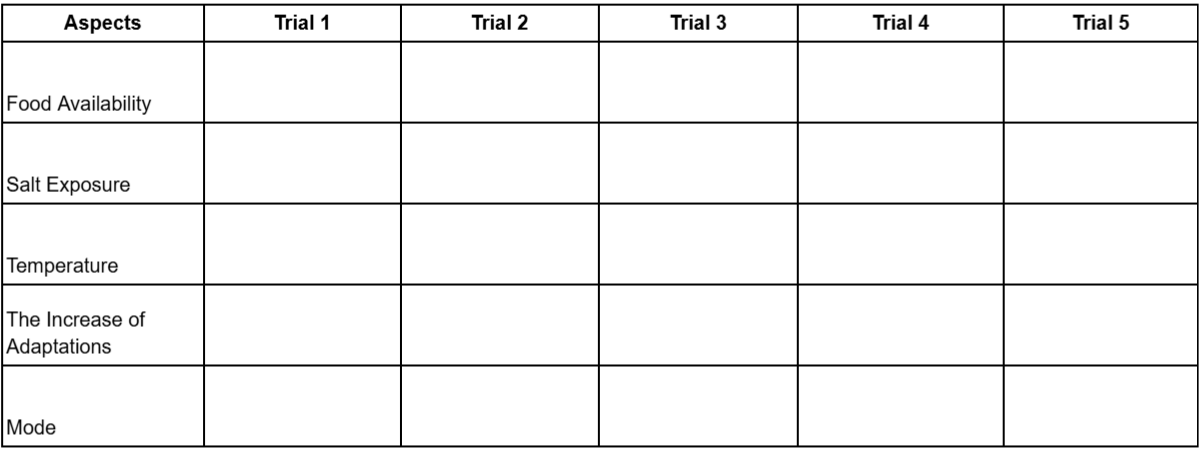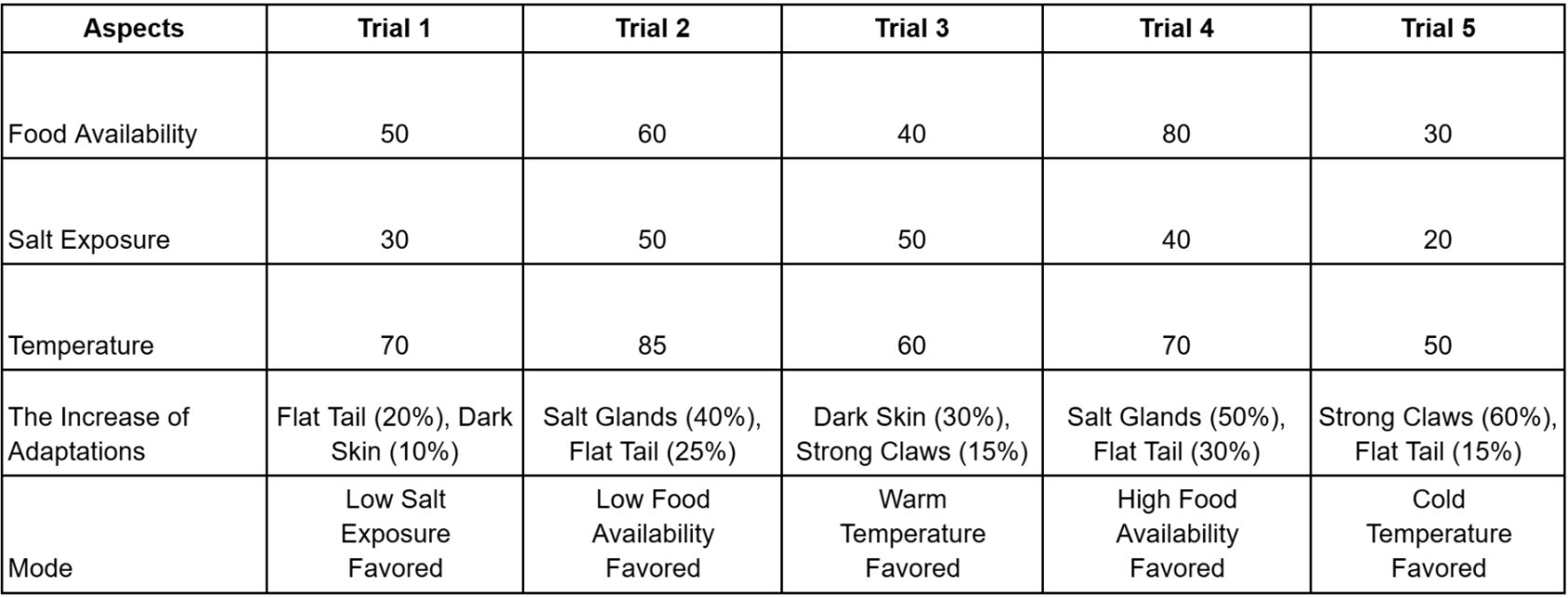Proving our Hypothesis
The Simulation
To prove our hypothesis, we made a simulation about the adaptations that happen in Marine Iguanas based on the resources that they have and their environment.
Observation Table
This table shows the different interactions between all the agents in our simulation. We recorded 5 trials each ranked with different aspects which are food availability salt exposure, temperature, and increase of adaptation.

